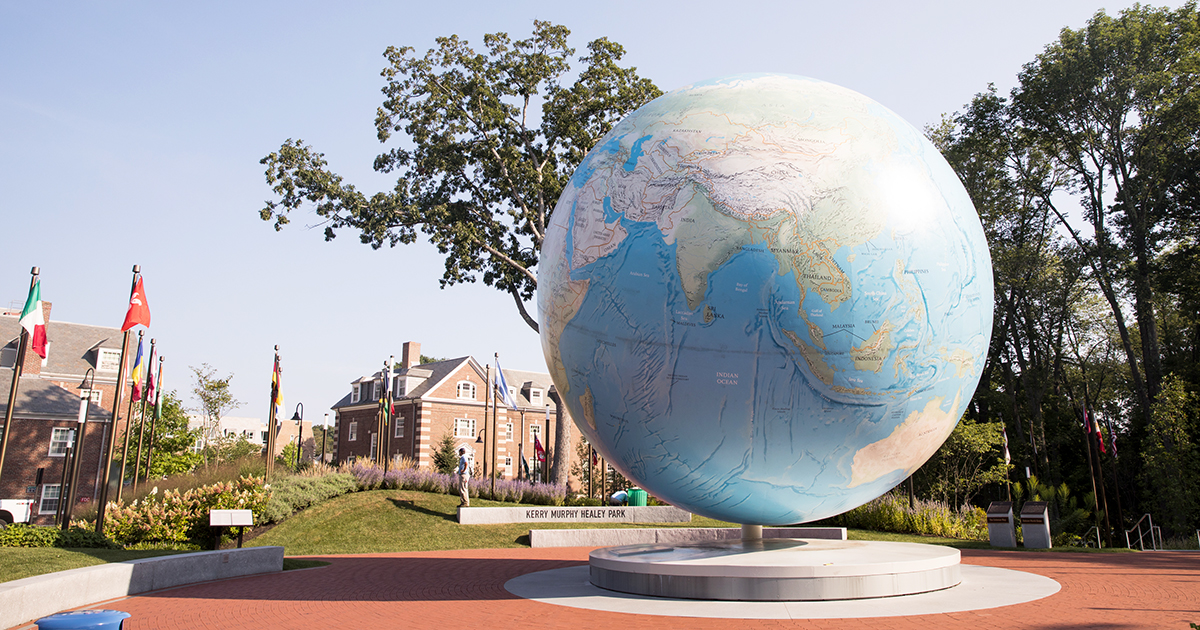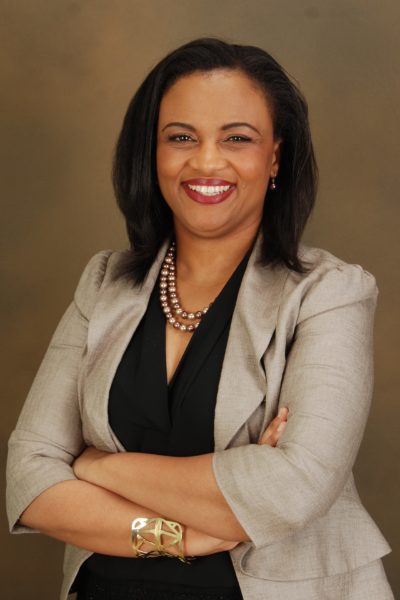New Faculty Award Funds Study of Healthcare Inequity in the United States

It has long been known that some groups of people have better access to good healthcare than others in the United States, based on income, age, race, geographic location, and a host of other factors.
The COVID-19 era has only sharpened the divide between the haves and have nots. And, those disparities will only have a growing impact, says Babson Associate Professor Wiljeana Glover.
“We’re living in a bubble if we think the healthcare disparities we see in underserved populations aren’t coming for us. Factors we see in underserved populations like transportation issues, housing, food scarcity—even those issues will trickle down,” says Glover, citing service workers getting sick and forcing businesses to close. “We’re not immune from the challenges of our neighbor.”
Now, Glover and a team of faculty members are researching healthcare inequities, thanks to a new scholarship provided by the new Faculty Research Angel Fund (FRAF), sponsored by The Arthur M. Blank School for Entrepreneurial Leadership at Babson College.
“Healthcare is such a hot area right now, with a global pandemic, an aging population, and high costs,” says Sandra Castaldini, Babson’s manager of faculty-sponsored research. “So, we’re excited to fund this and see where it goes.”
An Important Funding Pipeline
One of the hallmarks of The Blank School is its interdisciplinary approach, attracting faculty from across campus and across divisions to help define and develop entrepreneurial leaders. The FRAF award, which will help bolster research on entrepreneurial leadership, was announced in April.
The funding committee reviewed six applications, and the inaugural scholarship team truly is interdisciplinary, says Scott Taylor, the Endowed Chair for Values-Based Leadership at the Blank School.
The project “Investigating Healthcare Entrepreneurship: Financial Well-Being, Equity, and Social Determinants of Health” represents four Babson divisions. The research team includes: Glover, the Stephen C. and Carmella R. Kletjian Foundation Distinguished Professor of Global Healthcare Entrepreneurship and an associate professor in the Operations and Information Management Division; Candida Brush, the F.W. Olin Distinguished Professor of Entrepreneurship; Alia Crocker, associate professor of strategy; and Yunwei Gai, associate professor of economics.
Taylor says the team’s research “has implications that will be quite substantial to the fields of global healthcare practice and policy,” which he calls “a difficult context.”
The FRAF award provides faculty with a research budget for a maximum of three years and comes with a series of milestone requirements and an expectation that the researchers will seek external funding during the third year.
“Healthcare is such a hot area right now, with a global pandemic, an aging population, and high costs. So, we’re excited to fund this and see where it goes.”
Sandra Castaldini, Babson’s manager of faculty-sponsored research
Testing a Working Hypothesis
The inaugural winning team already has begun to use the award to perform its research, specifically conducting interviews and doing qualitative analysis of healthcare ventures in the United States. What they have found so far confirms a working hypothesis.
The team is working to understand the relationship between regions that have more health startups and healthcare equity. In terms of regions with the most startups, California comes out on top, followed by Massachusetts. After that, “there’s a precipitous decline,” Glover says.

With soaring costs and growing underserved populations, there are “tensions” in the healthcare industry, Glover says. So, one of the team’s research questions is, “How are healthcare startups responding to the needs of patient populations while also meeting financial goals and attracting venture capitalists?”
While responding to the underserved and making a profit may seem like two mutually exclusive goals, Glover says, “There are companies that are doing it, and they’re doing it by being more intentional in their market segmentation. They’re saying, ‘We want to go after these markets, and it can be profitable.’ ” There also are payers that can help startups accomplish both, such as Managed Medicaid. If a company sees the underserved as a “viable customer, there are financial incentives to be had.”
There also are companies that, while not actively going after underserved markets, are at least trying to avoid increasing disparity. They are doing this by asking, “How can I include more diverse populations in my clinical trials, or in my product designs?” Glover says.
Taylor says the Blank School is eager to see the results of this promising research, and committed to funding similar projects in the future. It can be difficult for faculty members to obtain large federal and foundation grants if they don’t have a track record of smaller grants, Taylor says. He describes it as a Catch-22, in which “faculty don’t have funding to do the work, but they can’t petition the grant without a track record of the work.”
The FRAF award will create a pipeline of funding that will give professors more freedom to pursue their scholarly research long term.
“These professors are collaborating and solving critical, current problems, and the project is something that can go on their bio sketch when they apply for external funding,” Castaldini says. “It’s the kind of seed money that will pay forward.”





